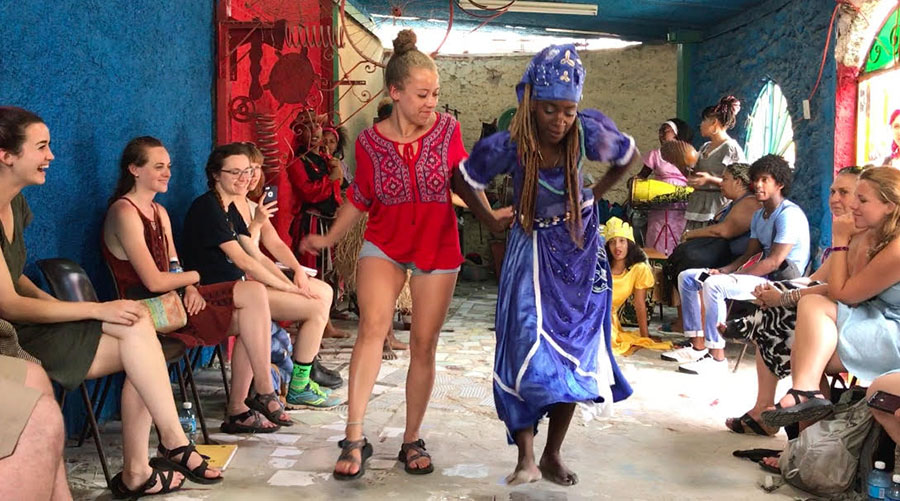Visit Cuba
Experience its music, dance, and food off-the-beaten path!

The Rhythm and Revolution: Cuba education abroad program provides the opportunity to earn six credits while spending two weeks in Cuba. The program includes two courses, each with cross-listed options.
After a weeklong orientation in Boone, students travel to Cuba to engage in embodied learning of social dance (salsa), Afro-Cuban ritual dance, and Cuban concert dance. They gain an understanding of Cuba’s journey from a Spanish colony to a Marxist-Leninist state. They'll learn to eat like a Cuban and meet Cubans - in schools, restaurants, workplaces, and even their homes. Along the way, students will visit important cultural institutions, attend performances, cook Cuban food, and visit notable restaurants and farms.
Through these activities, students broaden their perspectives, apply critical thinking and creative problem-solving, develop their capacities for responsible community membership, and gain knowledge of how social and political dynamics shape culture.
No prior knowledge of dance or Spanish is necessary. Just bring your curiosity!
Other activities may include the following:
Interact with students and professional artists in urban and rural Cuba.
Create with students at the Instituto Superior de Arte in Havana and at Korimakao in the Ciénaga de Zapata region.
Visit the National Museum of Dance in Havana.
Attend rehearsal and/or performance of the Ballet Nacional de Cuba and/or a contemporary concert dance company.
Explore a diversity of socioeconomic conditions, effects of tourism, landscapes, and language of class and race through numerous activities in both urban and rural settings. Activities may include walking tours of Havana, a horseback tour of a rural community, and a sample of village life in Viñales.
To express your interest next trip, contact Emily Daughtridge, Professor of Dance Studies.
Participants’ reflections:
“Remember when you were younger and you would play outside and randomly connect with your friends? This still happens in Cuba.”
“I think the most important thing I learned in Cuba was to not be afraid to dance.”
“The greatest difference I saw between the U.S. and Cuba was the idea of community rather than self. Cuba does not have the best technology, so family and friendships are their priority.”
“Communication can go beyond words… we were able to form bonds by sharing dance and music.”
“Seeing the way the country functions today, several decades following the communist revolution, was nothing short of mind-blowing for me.”
“I gained a deeper cultural understanding of an area so cut off from the U.S., even though it is just a mere 90 miles away. Meeting authentic, down-to-earth Cubans was the most rewarding part of this trip, as it allowed all of us as students, professors, and just plain citizens of this world to see just how much in common we truly have despite what our opposing governments may think.”
“Speaking to Cuban people with a slight language barrier was difficult but not impossible to overcome. Not being able to speak full sentences in Spanish opened up another form of communication full of expression rather than words.”
“Going out into the world and making connections, discovering some of the nuances of the culture and the domestic and international power exchanges is something I know will stay with me."